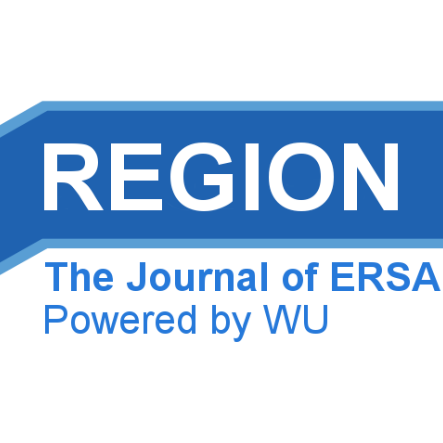Urbanisation in Developing Economies: building cities that work
DOI:
https://doi.org/10.18335/region.v5i1.245Abstract
This paper reviews recent work on the economics of fast growing developing country cities, with a focus on Africa. It sets out some of the broad facts about African urbanisation and summarises two recent pieces of research work. The first argues that coordination failure can create multiple equilibria and divergent paths of development, some in which cities are internationally competitive and able to create jobs, others in which cities are stuck in a ‘nono-tradables trap’. The second is a dynamic model of city growth, calibrated to changing patterns of land-use in Nairobi; the calibration suggests a very high cost of inefficient land use in the context of urban slums.
Published
How to Cite
Issue
Section
License
REGION is an open journal, and uses the standard Creative Commons license: Copyright We want authors to retain the maximum control over their work consistent with the first goal. For this reason, authors who publish in REGION will release their articles under the Creative Commons Attribution license. This license allows anyone to copy and distribute the article provided that appropriate attribution is given to REGION and the authors. For details of the rights authors grant users of their work, see the "human-readable summary" of the license, with a link to the full license. (Note that "you" refers to a user, not an author, in the summary.) Upon submission, the authors agree that the following three items are true: 1) The manuscript named above: a) represents valid work and neither it nor any other that I have written with substantially similar content has been published before in any form except as a preprint, b) is not concurrently submitted to another publication, and c) does not infringe anyone’s copyright. The Author(s) holds ERSA, WU, REGION, and the Editors of REGION harmless against all copyright claims. d) I have, or a coauthor has, had sufficient access to the data to verify the manuscript’s scientific integrity. 2) If asked, I will provide or fully cooperate in providing the data on which the manuscript is based so the editors or their assignees can examine it (where possible) 3) For papers with more than one author, I as the submitter have the permission of the coauthors to submit this work, and all authors agree that the corresponding author will be the main correspondent with the editorial office, and review the edited manuscript and proof. If there is only one author, I will be the corresponding author and agree to handle these responsibilities.




